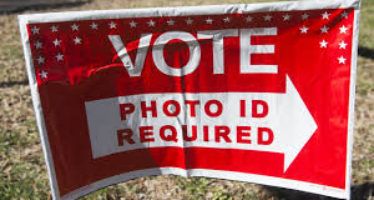Will State Pay For Special Elections?
JAN 14, 2011
By ANTHONY PIGNATARO
The best current estimated cost for Governor Jerry Brown’s proposed special election on whether to extend tax hikes another five years is roughly $70 million. Given recent history, counties across the state will have to pay that cost out of the own pockets, just like they’ve done 23 other times over the last two years.
“The state required that twenty-six counties hold twenty-three special elections at a cost of more than seventeen million dollars,” Senator Sam Blakeslee, R-San Luis Obispo, said in a press release sent out today. “The state should be paying its bills for the costs imposed on our counties.”
Blakeslee’s office calculated that his district incurred a quarter of all the state’s special election costs since January 2009 (a June 22 primary and then an Aug. 10 run-off). For that reason, yesterday Blakeslee introduced SB 106, a bill that would reimburse counties for all special election costs from early 2009 through April of this year. It would stop short of paying for the upcoming tax hike special election this summer.
“Our bill is written to reimburse special elections that have been formally proclaimed,” Erin Shaw, Blakeslee’s spokesperson, said. “Governor Brown’s special election has yet to be formally proclaimed.”
Blakeslee is framing the issue in terms of the state paying for services it has mandated. “As we begin to debate the merits of the Brown special election, a first step would be to demonstrate that we’re committed to paying our existing bills,” Blakeslee said in the press release announcing his new bill.
The bill appears to be quite popular with county officials throughout Blakeslee’s district. Another statement released by Blakeslee’s office listed a number of local officials who approved of his bill. One of them, Julie L. Rodewald, the San Luis Obispo County Recorder, has previously called for state reimbursement of special election costs. “The $720,000 owed to San Luis Obispo County for the Senate District 15 special vacany elections is just a small fraction of the local funds expended by countes for these elections and the reimbursements will help preserve or restore critical functions at the local level,” she said.
State officials used to reimburse counties for special election costs — local officials couldn’t very well refuse to hold votes, after all, because of costs — but ended the practice during particularly tough budget times. “You would see bills reimbursing for elections held in the next five years, the next two years,” Erin Treadwell, a spokesperson for the California State Association of Counties (CSAC) – which supports state reimbursement to counties but hasn’t yet reviewed Blakeslee’s bill – said. “That stopped in 2009. Not reimbursing is a rather recent situation.”
Indeed, Blakeslee’s office said that state law from 1993 to 2007 required reimbursing counties for special election costs, to protect county services from the additional burden imposed by having to pay sudden election costs like processing ballots and organizing poll volunteers. Though the Legislature repealed the law in 2008, reimbursements continued on a case-by-case basis. This ended with the May 2009 special election.
Since then, counties have been chafing against special election costs – at a time of tighter budgets, to boot. In fact, saving special election money for county taxpayers was reportedly a factor in state Senator John J. Benoit’s timing of his November 2009 resignation from the Senate to take a seat on the Riverside Board of Supervisors, to which then-Governor Arnold Schwarzenegger had just appointed him.
“I am very honored by the governor’s appointment,” Benoit wrote to Senate President Pro Tem Darrell Steinberg at the time. “[H]owever, I have been advised that a short deferral of my resignation may result in a significant savings to taxpayers. A slightly later date would potentially allow the consolidation of the senate special election [for his replacement] with the statewide June primary.”
Related Articles
Assemblymember to consider value of breasts in workers comp
Asm. Lorena Gonzalez, D-San Diego, will hold an informational hearing on Tuesday titled “Establishing the Evidence Based Value of Women’s
Chart Shows Aguirre Conflicts of Interest
JULY 22, 2011 By JOHN HRABE The following chart demonstrates the conflicts of interest for Dr. Gabino T. Aguirre, a
Republicans raise concern of voter fraud in Orange County, statewide election
Top Republicans have questioned the integrity of the California’s election results in recent days, forcing the state’s top election official




